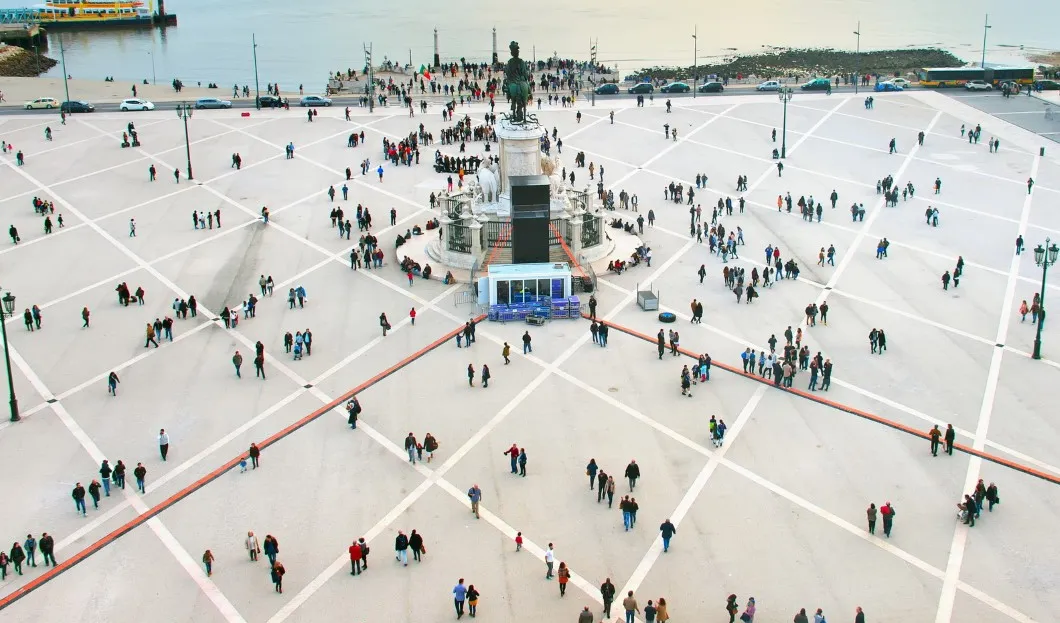
A recent study on the tourism sector in Portugal revealed that the industry is likely to grow in the area of luxury hospitality and several niche products like nature, surf, sun, beach, and culture. The regions with positive outlook with respect to tourism include Algarve, Lisbon, Porto and Madeira.
The study was published by Cushman & Wakefield in response to the increasing interest of real estate investors in the Portuguese tourism sector. The report “Hospitality Market in Portugal 2017” talks about a booming hotel sector in the country, marked by an excellent performance of hotels and by the ever increasing tourist indicators registered year after year, since 2010.
“The performance has been drawing the attention of international investors in tourism products, as they find in these assets an investment option with competitive ROI rates,” reads the paper. The study highlights the cities of Lisbon and Porto and the region of Algarve as very appealing destinations to the foreign capital and recognizes the hospitality assets of these zones as a very significant potential of recovery capital.
Among the main trends of the evolving tourism sector in Portugal, the authors highlight the product qualification, with an increase in the supply which will tend to focus on higher category facilities, and the expansion of alternative products such as nature (in Açores and Serra Algarvia), surf (on the West coast, in the North of Lisbon, Alentejana and Vicentina), and new ‘sun & beach’ destinations (in Troy and on the Coast of Alentejana) and of a cultural nature (in Évora, Coimbra, Aveiro, Guimarães and Braga).
A trend of market yields contraction is also noted in the study, mostly driven by the arrival of players with hotel management capabilities and by the increase of generated performances. The analysis points to yet another trend of concentration of operation” in the Portuguese tourism sector, with the current scattering of market operators to be substantially reduced through the growth of the dominant brands, essentially through the acquisition of the existing facilities, but also through some organic growth.
In this evolution process, the assertion of the dominant destinations such as Algarve, Lisbon, Porto and Madeira is expected. In Lisbon’s case, there are about 40 known future projects, which will translate to over 3,500 accommodation units in the next five years in the city, the majority of the projects being located in the center of the city and belonging to the four and five-star categories.
Although admitting that the level of growth in the supply in the last few years may evoke some reservations about the sustainability of the sector, the consulting agency points out that the growth of the demand was much bigger.
“Bearing in mind the inaugurations expected for the next three years in the city of Lisbon, the average annual growth of the supply may be estimated at 3%. For their part, the hotel stays in the capital in the last three years increased at an average annual rate of 11%, more than three times the rate expected for the supply,” the study states.
Regarding the Metropolitan Area of Porto – which today has over 170 hospitality establishments that offer about 12,000 accommodation units – the projects expected to open in the next three to five years surpass 30 facilities, the vast majority being located in the city of Porto.
“The increasing activity of the city for international tourists has been capturing the investment in new hospitality facilities, so that now there are 18 new projects with a demand that surpasses 1,200 rooms,” says Cushman & Wakefield, emphasizing that almost all of the new hotels expected to open in Porto in the next three years are four or five-star hotels. Such as in the capital, the average annual growth rate of 3% expected for the supply in Porto is “well below” the level of demand, whose average annual growth between 2014 and 2016 was around 15%.










